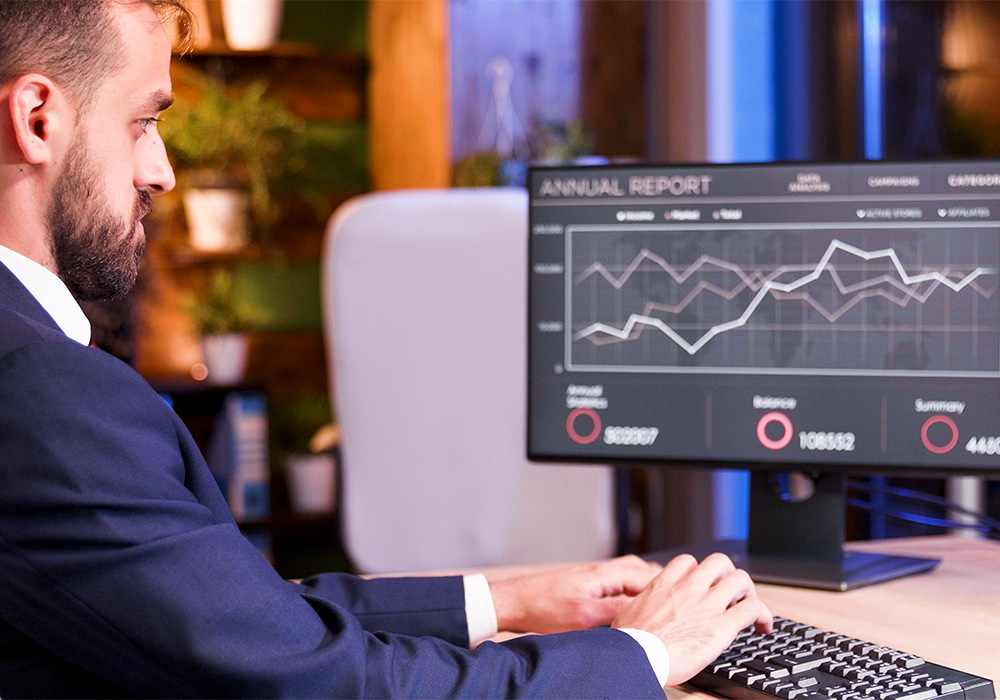The Role of Big Data in Stock Market Decision-Making
The stock market is a complex ecosystem where numerous factors influence decision-making. In recent years, Big Data has revolutionized how investors analyze, predict, and strategize their moves in the market. With vast amounts of data generated every second, the ability to process, analyze, and derive actionable insights from that data has become crucial for making informed decisions. In this article, we will explore how Big Data is reshaping stock market decision-making, its benefits, and how investors can leverage it to their advantage.
What Is Big Data and Why Is It Important in the Stock Market?
Big Data refers to the large volumes of structured and unstructured data that are generated at high speed from various sources. In the stock market, this data comes from numerous channels, including social media trends, financial reports, economic indicators, trading volumes, and even global news events. The sheer amount of information available can be overwhelming for traditional analytical methods, but with advancements in data analytics, it’s now possible to process and interpret this data for more accurate and faster decision-making.
The Impact of Big Data on Traditional Investment Strategies
Before the advent of Big Data, investment strategies primarily relied on historical data, expert opinions, and financial reports. However, Big Data allows investors to go beyond traditional sources of information. By analyzing real-time data from multiple sources, investors can make more accurate predictions about stock price movements and market trends. For example, sentiment analysis from social media can provide insights into public perception, which can impact stock prices. Additionally, algorithmic trading has also benefited from Big Data, enabling more precise execution of trades.
Key Benefits of Big Data in Stock Market Decision-Making
Integrating Big Data into stock market analysis has led to numerous benefits that traditional methods couldn’t offer. Let’s examine some of the key advantages:
1. Enhanced Accuracy in Predictions
One of the primary benefits of using Big Data is its ability to improve prediction accuracy. With access to more comprehensive data, traders and investors can make better-informed decisions. By analyzing patterns in large datasets, investors can identify trends and predict potential market movements with greater confidence.

2. Faster Decision-Making
The speed at which Big Data is processed allows investors to make faster decisions. In the highly volatile stock market, where prices can change within seconds, having access to real-time data can be the difference between a successful trade and a missed opportunity. Big Data analytics enables investors to react quickly to new information, which can help them capitalize on short-term market movements.
3. Reduced Risk
By analyzing historical and real-time data, Big Data helps investors identify potential risks before making decisions. This risk mitigation allows traders to make more calculated investments and reduce their exposure to unpredictable market fluctuations. Additionally, by analyzing past performance data and external factors, investors can determine the likelihood of success or failure of a trade.
How Big Data Is Used in Stock Market Trading
Now that we understand the importance of Big Data, let’s dive into how it’s used in practice within stock market trading. The implementation of Big Data analytics in the stock market has transformed the way investors and traders operate. Here are some examples of how it is applied:
1. Sentiment Analysis
Sentiment analysis is a method of analyzing public opinion or sentiment about a particular company, stock, or market trend. Big Data tools scan social media platforms, news articles, and online forums to determine the overall sentiment surrounding a stock. This information is invaluable, as it helps traders predict price movements based on public perception. Positive sentiment usually leads to higher demand for a stock, while negative sentiment can cause a decrease in price.
2. Algorithmic Trading
Algorithmic trading is a key area where Big Data has made a significant impact. Algorithms use historical and real-time data to make automatic trading decisions based on pre-set rules. These algorithms can process vast amounts of data quickly, allowing trades to be executed with precision and at optimal times. The ability to analyze multiple data points simultaneously ensures that trades are made based on the most up-to-date information, reducing human error and emotional decision-making.
3. Predictive Analytics
Big Data’s ability to predict future trends and outcomes has made it a valuable tool in stock market trading. Predictive analytics analyzes historical data, current market conditions, and external factors (such as economic reports) to make accurate predictions about future stock prices. By leveraging machine learning models, investors can gain insights into potential price movements and market shifts.
Challenges of Using Big Data in Stock Market Decision-Making
While the benefits of Big Data in the stock market are undeniable, there are also challenges that investors must be aware of:
1. Data Overload
One of the biggest challenges with Big Data is the overwhelming volume of information that is generated. Not all data is relevant to a particular stock or market decision, and it can be difficult to filter out the noise. Investors need to rely on sophisticated tools and analytics to separate useful data from irrelevant data to make informed decisions.
2. Cost of Implementation
Implementing Big Data analytics requires advanced technology and resources, which can be costly. Smaller investors or firms may struggle to implement the necessary infrastructure to process and analyze large datasets. However, as technology advances, the cost of Big Data analytics is becoming more accessible to a wider range of investors.
3. Data Security
As with any data-driven system, data security is a concern when using Big Data in stock market trading. Sensitive financial information must be protected, and any breaches in data security can have significant consequences. Ensuring that robust data protection measures are in place is essential for any firm using Big Data.
The Future of Big Data in Stock Market Decision-Making
The future of Big Data in the stock market looks promising. As technology continues to evolve, we can expect even more advanced analytics tools that will make stock market predictions even more accurate. Artificial intelligence (AI) and machine learning models are already playing a significant role in Big Data analytics, and their influence will only grow. These technologies will allow traders to gain even deeper insights into market trends, investor behavior, and future stock performance.

Integration with Artificial Intelligence
AI-driven tools will further enhance the capabilities of Big Data analytics by providing more sophisticated insights. AI algorithms can analyze complex data sets, identify patterns, and predict future outcomes more accurately. In the stock market, this will help investors make even better decisions, improve trading efficiency, and optimize portfolio performance.
Real-Time Data Analytics
With advancements in real-time data analytics, traders will have access to even faster insights. This will allow them to respond to market changes in real-time, making it easier to capitalize on short-term opportunities. The combination of real-time data and predictive analytics will provide investors with the edge they need to stay ahead in the competitive stock market.
Conclusion: Big Data as a Game-Changer in Stock Market Trading
Big Data has already made a profound impact on the way decisions are made in the stock market. From enhancing prediction accuracy to enabling faster and more informed decisions, its influence is undeniable. As we look to the future, the role of Big Data in stock market decision-making will only continue to grow. Investors who leverage Big Data will be better positioned to navigate the complexities of the market and maximize their returns.
By combining traditional investment knowledge with the power of Big Data analytics, investors can achieve a significant advantage in the ever-evolving world of stock trading.


